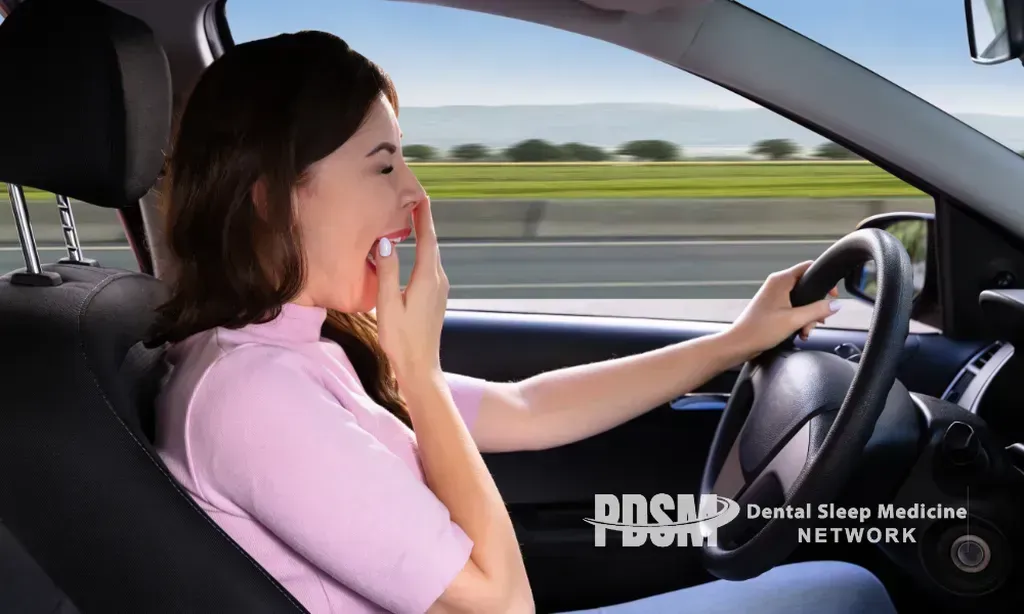5 Tips to Help Avoid Drowsy Driving

During the holidays, traffic deaths increase by 30% according to online driver's education resources. Thanksgiving was found to be the most dangerous! Here are some key tips to help you and your family stay safe on the road.
Driving while drowsy is a serious public health issue, causing an average of 328,000 motor vehicle accidents resulting in 6,400 fatalities, according to the AAA Foundation for Traffic Safety.
Fatigued driving can have the same consequences as driving while under the influence of drugs and alcohol: drowsiness is similar to alcohol in how it compromises driving ability by reducing alertness and attentiveness, delaying reaction times, and hindering decision-making skills.
Drowsy Driving Warning Signs
Unfortunately, drowsy driving can be difficult to identify. Some drivers aren’t aware that they have fallen asleep at the wheel even after being asleep for a few minutes. Drowsiness can impair the ability to drive safely, even if the driver does not fall asleep.
A survey from the American Academy of Sleep Medicine found that 45% of adults have struggled to stay awake while driving. Some of the warning signs that you need be aware of include:
- Frequent yawning or inability to keep your eyes open
- Catching yourself “nodding off” or having trouble keeping your head up
- Inability to remember driving the last few miles
- Missing road signs or driving past your turn
- Following too close to cars in front of you
- Drifting into the other lane of traffic
- Driving onto the “rumble strip” or the shoulder of the road
5 Tips to Help Avoid Drowsy Driving
When you get behind the wheel of a motor vehicle, you take responsibility for the safety of your passengers, other drivers on the road, pedestrians, and yourself. Always take extra precautions to make sure you are alert and ready. Here are five (5) useful tips to help prevent
- Before the start of a long car trip, get a good night’s sleep. Experts urge consumers to make it a priority to get seven to eight hours of sleep every night.
- Avoid drinking any alcohol before driving. Consumption of alcohol interacts with sleepiness to increase drowsiness and impairment.
- Always check your prescription and over-the-counter medication labels to see if drowsiness could result from their use.
- Avoid driving during the peak sleepiness periods, midnight to 6:00 a.m. and late afternoon. If you must drive during the peak sleepiness periods, stay vigilant for signs of drowsiness, such as crossing over roadway lines or hitting a rumble strip, especially if you’re driving alone.
- If you feel yourself getting drowsy, pull over at a rest stop or a safe place along the road and take a break from driving.
Drowsy Driving Due to Daytime Fatigue
But what if you follow all of the recommended precautions but still find yourself getting drowsy while driving? Often, drowsy driving can be due to a sleep disorder such as Insomnia or Sleep Apnea. If you wake up feeling exhausted even after a full night's sleep, you might have one of these conditions.
What is Sleep Apnea?
Sleep Apnea is a disorder that causes breathing to repeatedly stop and start, often hundreds of times, while you are sleeping. Obstructive sleep apnea is the more common form and occurs when throat muscles relax and your tongue causes full or partial blocking of your airway.
When you have sleep apnea you are constantly going in and out of the initial stages of sleep, never reaching the critical deep sleep stages where your body can fully rest.
If you don’t enter these deep sleep stages, you aren’t getting the rest you need to allow your body to fully repair itself. When you don’t get enough sleep, you will lack energy and feel fatigued, constantly trying to catch up on your sleep.
If you leave your sleep apnea untreated it can lead to serious consequences besides feeling tired all the time, like putting yourself and others in danger of getting into an accident while you are driving. Untreated sleep apnea is also associated with other serious health conditions like heart disease, stroke, diabetes, and others.
Don’t wait until drowsy driving ends in deadly consequences!
Contact us today to learn how an oral appliance can help treat your sleep apnea and reduce daytime fatigue.


